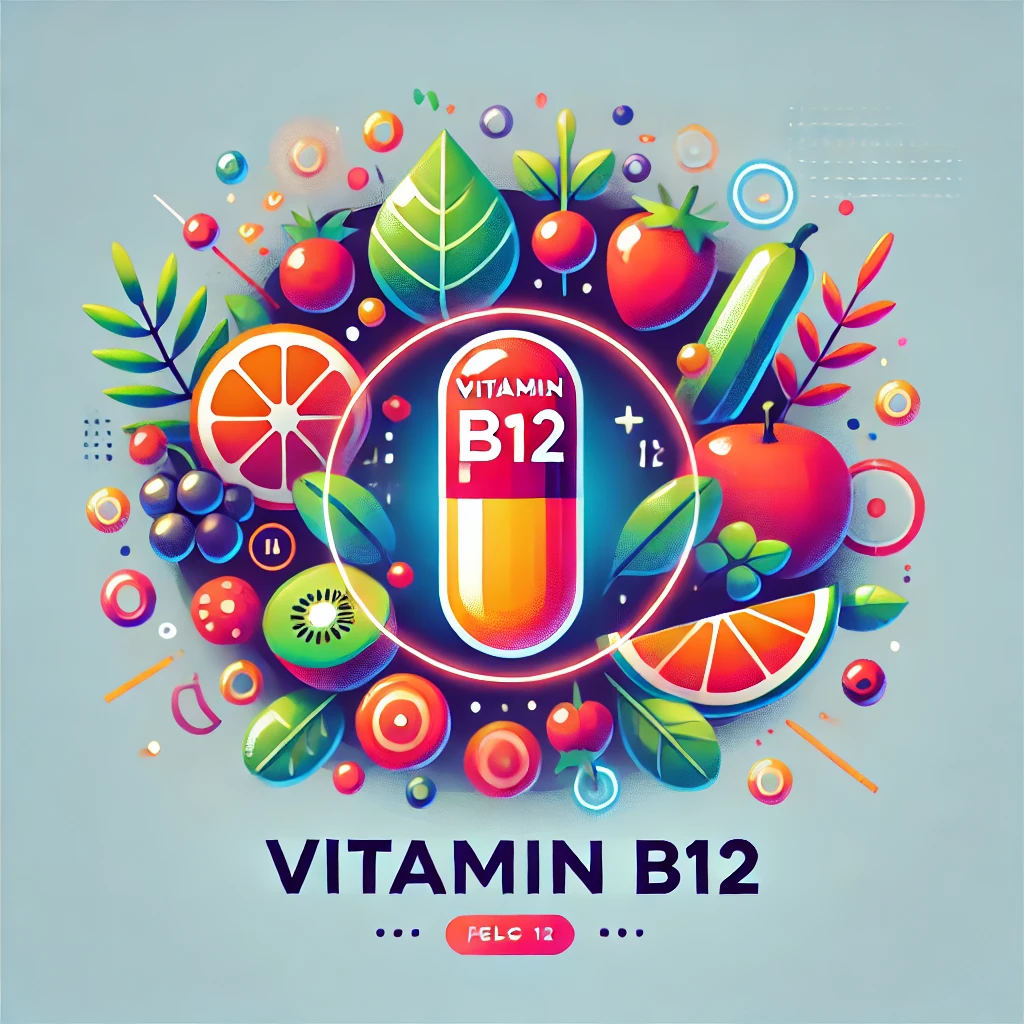Vitamin B12, also called cobalamin, is a water-soluble vitamin essential for a variety of bodily functions. It is involved in the production of red blood cells, brain function, DNA synthesis, and the maintenance of the nervous system. The body doesn’t produce B12 naturally, so it must be obtained from dietary sources such as meat, fish, dairy, eggs, or through supplements.
People following plant-based diets are at a higher risk of deficiency and may need to rely on fortified foods or supplements to maintain proper B12 levels.
Read also: 4 Amazing benefits of apple cider vinegar!
Scientifically Proven Benefits of Vitamin B12
Vitamin B12 is much more than just an energy booster. The following scientifically supported benefits highlight its vital role in health:
1. Boosts Energy Levels
B12 is perhaps most famous for its ability to combat fatigue. This is due to its role in red blood cell production and oxygen transport throughout the body. Low B12 levels can result in anemia, which leads to tiredness, weakness, and fatigue.
- What the Science Says: A study published in the American Journal of Clinical Nutrition found that B12 supplementation can alleviate feelings of fatigue and improve energy in people with low levels of the vitamin. While B12 isn’t a magic energy pill, maintaining healthy levels is crucial for staying energized throughout the day.
2. Supports Brain Function
Vitamin B12 is a cornerstone of brain health. It helps maintain the health of nerve cells and is involved in the production of neurotransmitters—chemicals that transmit signals in the brain.
- What the Science Says: Research published in Neurology suggests that people with sufficient B12 levels have better cognitive function, while those with low levels experience cognitive decline and an increased risk of dementia. Studies also suggest that B12 supplementation can help protect against neurodegenerative diseases such as Alzheimer’s.
3. Improves Mood and Mental Health
B12 plays an essential role in the synthesis of serotonin, a neurotransmitter involved in regulating mood. Low B12 levels have been associated with depression, anxiety, and other mood disorders.
- What the Science Says: A study in The Journal of Clinical Psychiatry found that people with B12 deficiency were more likely to experience depression. In some cases, supplementation has been shown to improve mood and reduce symptoms of depression, particularly when combined with other treatments.
4. Promotes Healthy Red Blood Cells
Vitamin B12 is key to the production of healthy red blood cells. A deficiency can lead to megaloblastic anemia, where the body produces large, ineffective red blood cells that can’t carry oxygen properly.
- What the Science Says: A 2013 study in The Lancet found that B12 supplementation is an effective treatment for individuals with pernicious anemia, a condition where the body can’t absorb enough B12. Ensuring adequate B12 levels is crucial for maintaining optimal red blood cell health.
5. Supports Healthy Pregnancy and Fetal Development
Vitamin B12 is crucial during pregnancy for fetal development, particularly for the formation of the brain and spinal cord. A deficiency in B12 during pregnancy can increase the risk of birth defects, premature birth, and developmental problems.
- What the Science Says: Studies have shown that pregnant women with low B12 levels are more likely to give birth to babies with neural tube defects. Ensuring adequate B12 intake during pregnancy is essential for healthy fetal development.
6. Reduces the Risk of Heart Disease
Vitamin B12 plays a role in lowering homocysteine levels in the blood. Elevated homocysteine has been linked to an increased risk of cardiovascular diseases. B12 helps break down homocysteine, promoting heart health.
- What the Science Says: Research suggests that individuals with higher B12 levels have a reduced risk of heart disease due to lower homocysteine levels. While B12 supplementation alone is not a heart disease cure, maintaining healthy levels may contribute to overall cardiovascular health.
7. Helps Prevent or Manage Type 2 Diabetes
B12 is involved in insulin production and glucose metabolism. Some studies suggest that vitamin B12 may improve insulin sensitivity, helping the body use sugar more effectively.
- What the Science Says: A study published in The Journal of Clinical Endocrinology & Metabolism found that B12 supplementation may help manage blood sugar levels in individuals with diabetes. However, more research is needed to establish a definitive link between B12 and diabetes management.
8. Improves Skin Health
Vitamin B12 contributes to cell regeneration, which helps maintain healthy skin. Some studies suggest that adequate B12 levels can help prevent or alleviate skin conditions like acne, eczema, and dermatitis.
- What the Science Says: While B12 isn’t a magic cure for skin problems, research indicates that people with low B12 levels may experience improved skin health with supplementation. Additionally, B12 is included in many skincare products due to its potential to rejuvenate skin cells.
9. Aids in Bone Health
Vitamin B12 plays a role in bone metabolism, and research suggests that B12 deficiency may contribute to lower bone mineral density, leading to osteoporosis and an increased risk of fractures.
- What the Science Says: Studies have shown that individuals with higher B12 levels tend to have healthier, denser bones. Ensuring adequate B12 intake is important for preventing bone loss, especially in older adults.
Unproven Claims and Emerging Research
While B12 is a powerful nutrient, there are several claims about its benefits that have yet to be fully validated by science. Here are some popular, yet unproven, claims that are currently being explored:
1. Weight Loss Aid
Some people believe that B12 supplements can promote weight loss by boosting metabolism or increasing fat breakdown. However, there is little scientific evidence to support this.
- Emerging Research: A small study published in The International Journal of Obesity found no significant difference in weight loss between participants who received B12 supplements and those who did not. Although B12 may help with energy levels, it doesn’t appear to directly promote fat loss.
2. Enhances Hair Growth
Vitamin B12 is sometimes touted as a remedy for hair thinning and loss. While B12 deficiency can contribute to hair loss, there’s no solid evidence that extra B12 boosts hair growth in healthy individuals.
- Emerging Research: Research on B12’s effect on hair health is limited. While it’s true that low B12 levels can contribute to hair loss, supplementation does not appear to enhance hair growth unless you’re already deficient.
3. Fights Off Aging
Some proponents claim that vitamin B12 has anti-aging effects, helping to preserve skin elasticity and vitality. While B12 is essential for cellular regeneration, it’s not a fountain of youth.
- Emerging Research: Preliminary studies suggest that B12 may contribute to healthier skin and better aging outcomes, but more robust research is needed to fully understand its potential anti-aging effects.
How to Get Enough Vitamin B12
Ensuring sufficient B12 intake is crucial, especially for those who may be at risk of deficiency. Foods rich in vitamin B12 include:
- Meat (beef, chicken, pork)
- Fish and seafood (salmon, tuna, shrimp)
- Dairy products (milk, cheese, yogurt)
- Eggs
For vegetarians, vegans, or anyone avoiding animal products, B12 can be obtained from fortified foods like plant-based milk, breakfast cereals, and nutritional yeast, or through supplements.
Read also: 15 Self-Love affirmations to transform your life!



